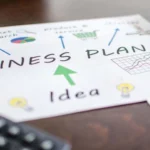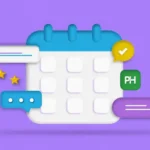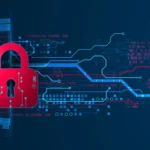Learning to sit back and observe before reacting is a critical skill in today’s fast-paced world. Not every situation demands an immediate response.
By taking time to reflect, you can avoid impulsive decisions, reduce stress, and make more thoughtful choices.
This article will explore the importance of observation and how it can enhance decision-making and personal well-being.
What Does It Mean to Sit Back and Observe?
At its core, sitting back and observing means consciously choosing not to react instantly to the stimuli around you.
It involves taking a pause, reflecting on the situation, and responding with careful consideration rather than knee-jerk reactions.
This ability is rooted in self-awareness and emotional intelligence and plays a significant role in how we manage stress, make decisions, and build relationships.
Importance of Patience in Observation
Patience allows us to gather information and understand situations better. It prevents us from jumping to conclusions or making impulsive decisions that could lead to mistakes.
When you observe first, you create a space for clarity to emerge, which leads to better choices and outcomes.
| Benefits of Patience | Consequences of Impulsiveness |
|---|---|
| Thoughtful responses | Regrettable actions |
| Improved relationships | Misunderstandings and conflict |
| Better decision-making | Poor, rushed decisions |
| Reduced stress and anxiety | Heightened stress and emotional outbursts |
Patience is not only a personal virtue but a practical skill that can be applied in various situations—whether it’s handling workplace dynamics, managing personal relationships, or navigating everyday challenges.
The Concept of Observation
Why Observation Matters
Observation isn’t merely about seeing. It involves paying close attention to details and evaluating what’s happening around you without jumping to conclusions or reacting on impulse.
It’s an intentional, mindful approach to understanding the world and situations around you.
Whether you’re in a professional setting, personal relationship, or simply navigating life, developing observational skills can lead to better decision-making, improved relationships, and reduced stress.
By sharpening your ability to observe, you can also become more aware of your emotions and how external factors influence them.
A Historical Lens
Throughout history, philosophers, thinkers, and leaders have emphasized the power of observation.
From the teachings of ancient Greek philosophers like Socrates, who advocated for self-reflection, to modern mindfulness practices, observation has always been seen as a cornerstone of wisdom and personal growth.
Consider the wisdom of Sun Tzu, the ancient Chinese military strategist, who believed that the ability to observe and wait for the right moment was crucial to success.
This timeless principle is equally applicable to our personal and professional lives today.
Why Not Everything Needs a Reaction
It’s easy to feel pressure to react quickly in today’s fast-paced world. Whether it’s social media notifications, workplace demands, or personal conflicts, the expectation to respond immediately can be overwhelming.
However, not everything warrants an immediate reaction. Taking a step back can offer numerous advantages.
Reducing Emotional Reactions
Reacting to every situation can drain your energy and lead to emotional exhaustion.
Emotional intelligence plays a key role here, as it involves recognizing and understanding your feelings and those of others before responding.
When you take time to observe, you give yourself the opportunity to process your emotions calmly, which leads to more thoughtful and constructive responses.
For instance, imagine you receive critical feedback at work. Instead of reacting defensively, taking a moment to sit back and observe your emotions will allow you to respond professionally. This reduces unnecessary conflict and opens the door to growth.
| Benefits of Emotional Intelligence | Impact |
|---|---|
| Increased self-awareness | Better decision-making |
| Improved interpersonal relationships | Reduced conflict |
| Enhanced stress management | Greater emotional stability |
Avoiding Unnecessary Stress
Immediate reactions often create more stress than they alleviate. Hasty decisions made in the heat of the moment can escalate situations that could have been resolved peacefully.
By observing first, you can identify which issues truly require your attention and which can be let go, thus significantly reducing stress.
Example: A parent who immediately scolds their child for every small mistake may cause undue tension in the household.
Instead, if they observe first and assess the situation calmly, they can address the issue in a more positive and effective manner.
The Power of Observation
Observation is a skill that goes beyond simply seeing. It is about paying attention to details, noticing patterns, and understanding the context of situations before making any decisions.
This practice has far-reaching benefits in both personal and professional life.
Enhanced Understanding of Situations and People
When you take the time to observe, you gain a deeper insight into the people and situations around you.
This heightened awareness allows you to pick up on subtleties that you might otherwise miss, leading to more effective communication and problem-solving.
For example, if you notice a colleague acting withdrawn, observing their behavior over time can help you understand if they are going through a personal issue, allowing you to offer support at the right time.
Similarly, in personal relationships, observation can help you identify what your loved ones truly need, fostering stronger and more empathetic connections.
Improving Decision-Making
Observation is critical to making well-informed decisions. It provides you with the information necessary to evaluate all options, predict potential outcomes, and choose the best course of action.
Instead of making decisions based on incomplete information or fleeting emotions, observation enables you to make choices that are logical and aligned with your goals.
| Observation-Based Decision Making | Impulsive Decision Making |
|---|---|
| Collects all relevant information | Acts on incomplete data |
| Considers long-term consequences | Focuses on short-term outcomes |
| Aligns decisions with values and goals | Risks poor alignment with true needs |
How to Practice Observation
Learning to observe rather than react is a skill that requires practice and mindfulness. Here are some practical ways to begin incorporating observation into your daily life.
Mindfulness Techniques for Better Observation
Mindfulness is the art of being fully present in the moment, without judgment. It is one of the most effective tools for cultivating observation.
Meditation Practices
Start by dedicating a few minutes each day to meditation. Meditation helps calm the mind and enhances your ability to observe your thoughts and emotions without becoming overwhelmed by them.
Over time, this practice will enable you to carry the same calm observation into daily interactions and decisions.
Breathing Exercises
When you feel the urge to react immediately, pause and take a few deep breaths.
Focused breathing centers your mind and brings your attention back to the present moment.
This brief pause can give you the clarity you need to respond thoughtfully instead of reacting impulsively.
Active Listening
Active listening involves fully concentrating on what the other person is saying, without planning your response while they are speaking.
This practice strengthens your ability to observe social cues, emotional tones, and the context of conversations, leading to better communication and understanding.
Techniques for Active Listening
- Maintain eye contact with the speaker
- Nod or give verbal affirmations like “I understand”
- Ask clarifying questions to ensure you fully understand their point
Benefits of Active Listening
By truly listening to others, you not only improve your observational skills but also strengthen relationships.
People feel heard and valued when you give them your full attention, leading to deeper, more meaningful connections.
Practical Ways to Incorporate Observation Into Your Life
Observing in Professional Settings
In the workplace, observation can significantly enhance your performance and relationships.
Whether you’re a manager assessing team dynamics or an employee navigating office politics, observation helps you understand situations better and respond more strategically.
Example: A manager who observes their team’s behavior during stressful projects can identify patterns of productivity and stress. By understanding these patterns, the manager can implement better support systems and create a more efficient work environment.
Observation in Personal Relationships
Observation is equally valuable in personal relationships. Taking time to observe your partner, friends, or family members can help you better understand their needs, emotions, and preferences.
This understanding leads to stronger relationships and fewer misunderstandings.
For instance, if your partner seems unusually quiet, instead of assuming they’re upset with you, observe their overall behavior.
They may be dealing with stress from work, and your thoughtful observation can lead to a more supportive and constructive conversation.
Practical Steps to Develop a Non-Reactive Mindset
Identify Your Triggers
The first step in developing a non-reactive mindset is identifying what triggers you. Triggers are situations or emotions that prompt an immediate reaction, often negative.
By recognizing these, you can pause before reacting and choose a more thoughtful response.
Create a Calm Environment
A calm environment fosters better observation. Whether it’s a quiet space at home or a peaceful spot in nature, finding a place free of distractions allows you to reflect and observe without feeling rushed or pressured.
This could mean creating a relaxing corner in your home or stepping outside for a walk during a stressful day.
| Non-Reactive Techniques | How to Implement |
|---|---|
| Identifying Triggers | Keep a journal to track situations that cause emotional reactions. Reflect on how you responded. |
| Creating a Calm Environment | Dedicate a quiet space in your home for reflection, or find moments during the day to practice mindfulness. |
The Benefits of Observation
Gaining Insight and Clarity
Observation offers the opportunity to gather valuable insights. When you allow yourself to step back and take in the full scope of a situation, you develop a more comprehensive understanding of it.
This is particularly useful in professional settings where critical decisions depend on analyzing data, observing trends, or understanding human behavior.
For example, business leaders who prioritize observation over hasty decision-making often excel because they can see market trends, customer needs, and team dynamics more clearly.
Similarly, in personal relationships, observation helps you better understand your loved ones’ needs and emotions, fostering stronger connections.
Improved Decision-Making
One of the most significant benefits of sitting back and observing is improved decision-making.
When you take the time to gather information, reflect on possible outcomes, and weigh your options, you’re far more likely to make well-informed decisions.
This often results in better long-term outcomes, both in your personal and professional life.
In contrast, decisions made in haste or under emotional stress tend to overlook key factors, which can lead to mistakes or poor outcomes.
Patience allows you to see the full picture and act in alignment with your values and goals.
ALSO READ: ARK: Survival Evolved (2017) Game Icons and Banners
Challenges in Learning to Observe
Like any new habit, learning to sit back and observe comes with its challenges. However, with consistent practice, you can overcome these obstacles.
Overcoming Impulsiveness
The urge to react immediately is deeply ingrained, and breaking this habit requires patience.
Start by identifying your triggers—situations or emotions that make you feel the need to react quickly.
Once you become aware of these triggers, you can take conscious steps to pause and observe instead of reacting.
Managing Distractions
In today’s hyperconnected world, distractions are everywhere. From smartphones to constant notifications, staying focused on the present moment can be difficult.
Practice creating a calm environment where you can observe and reflect without being pulled in multiple directions.
Conclusion
Learning to sit back and observe rather than reacting immediately is a transformative skill that can improve every aspect of your life. It reduces stress, enhances relationships, and leads to better decision-making.
By incorporating mindfulness practices, active listening, and patience into your daily life, you can cultivate a habit of observation that empowers you to navigate life’s challenges with clarity and calmness.
So, next time you feel the urge to react, take a moment to pause, breathe, and observe. The world often reveals itself in surprising ways when we take the time to truly notice.
FAQs
Q: How does observation help in making better decisions?
A: Observation allows you to gather all relevant information before making decisions. It helps in avoiding impulsive choices and leads to well-informed, thoughtful decisions.
Q: Why is it difficult to resist reacting immediately?
A: Immediate reactions are often a result of ingrained habits or emotional triggers. It takes practice and mindfulness to develop the skill of observing first.
Q: Can observation really reduce stress?
A: Yes, by not reacting impulsively, you avoid unnecessary conflicts and stress. Observing first allows you to approach situations calmly, reducing emotional tension.
Q: What are some simple ways to start practicing observation?
A: Start with mindfulness practices like meditation and breathing exercises. Engage in active listening and create environments that promote reflection.
Q: How can observation improve relationships?
A: Observation helps you understand others better, leading to more thoughtful responses and stronger, more empathetic connections.







